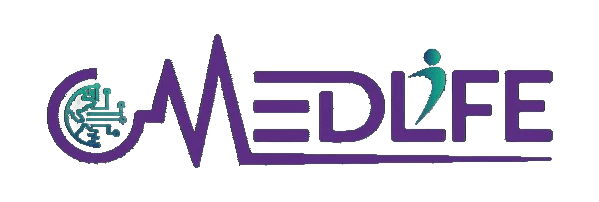Medical billing is the backbone of the healthcare industry, ensuring that healthcare providers are paid for the services they offer while maintaining transparency with patients. In an industry where time, resources, and financial stability are critical, accuracy in medical billing cannot be overstated. Mistakes in this area can lead to a cascade of problems from delayed reimbursements and increased administrative costs to lost revenue and dissatisfied patients. In this comprehensive guide, we’ll explore why accurate medical billing is essential and how it affects not just the financial health of healthcare organizations, but also patient care, regulatory compliance, and overall operational efficiency.
Why Medical Billing Accuracy Matters
Accurate medical billing is fundamental to a healthcare organization’s success, and its importance touches on several key areas:
1. Ensuring Financial Stability
The accuracy of medical billing directly impacts a practice’s cash flow and overall financial viability. Medical practices rely on timely and correct reimbursements from insurance providers, patients, and government programs like Medicaid and Medicare. Incorrect billing can lead to underbilling (missed revenue) or overbilling (which can result in penalties). Both scenarios can disrupt a practice’s revenue cycle, causing unnecessary financial strain.
The Consequences of Billing Errors:
- Claim Denials and Delays: Inaccurate billing often leads to denied claims, delayed payments, or complete payment denial. This disrupts cash flow and requires additional time and resources to rectify, negatively impacting operational efficiency and revenue generation.
- Revenue Leakage: Underbilling may result in missed payments, while overbilling can lead to reimbursement disputes, further complicating the revenue cycle.
- Cost of Rework: Even when errors are identified, correcting them requires significant resources time spent resubmitting claims, coordinating with insurance companies, and handling disputes adds administrative costs that drain resources and reduce practice productivity.
2. Supporting Compliance and Reducing Legal Risks
The healthcare industry operates under stringent regulatory frameworks, including HIPAA (Health Insurance Portability and Accountability Act), coding systems like ICD-10 and CPT, and payer-specific guidelines. Non-compliance can result in severe financial penalties, fines, and damage to a healthcare organization’s reputation.
Staying Compliant:
- Accurate medical coding ensures that practices follow updated regulations, minimizing the risk of compliance-related issues.
- By keeping coding practices up-to-date, healthcare providers can avoid the risk of audits, fines, and other legal consequences that can arise from non-compliant billing.
3. Improving Patient Care and Satisfaction
Billing accuracy impacts not just the financial health of healthcare providers, but also patient care. Incorrect billing can lead to confusion about treatment costs, delays in necessary care, and frustration for patients trying to resolve billing issues. Timely and accurate billing allows for a smoother experience for patients, ensuring they know what they owe and what’s covered by their insurance. When patients experience billing accuracy, they are more likely to trust their healthcare provider, which builds long-term patient-provider relationships.
How Billing Accuracy Enhances the Patient Experience:
- Clearer Billing Statements: Patients can understand what they are being charged for and why, reducing confusion and billing disputes.
- Timely Approvals and Referrals: Accurate billing ensures that treatment and referral processes are not delayed due to incorrect information or paperwork.
- Reduced Stress: When patients know their insurance claims are processed accurately, they don’t have to worry about receiving surprise bills or having their treatment delayed due to billing errors.
4. Enabling Efficient Revenue Cycle Management
A seamless revenue cycle depends on accurate medical billing services. The process—from patient intake and treatment to insurance verification and reimbursement relies heavily on the accuracy of the information entered. Mistakes made early on in the billing process can cause a ripple effect, making it harder for healthcare organizations to manage their finances effectively.
The Role of Accurate Medical Billing in Revenue Cycle Management:
- Streamlined Claims Processing: By adhering to correct billing practices, claims are processed and paid on time, which helps maintain a healthy revenue cycle.
- Reduced Administrative Burden: When claims are correct the first time, there’s less need for resubmissions or follow-ups, which reduces the time and costs associated with administrative tasks.
- Improved Cash Flow: By reducing the number of claims denials and rework required, accurate billing improves overall cash flow, allowing practices to allocate resources more efficiently and plan for future growth.
Best Practices for Ensuring Accurate Medical Billing
Ensuring accuracy in medical billing requires a proactive approach. The following best practices can help healthcare providers maintain a high level of accuracy and prevent errors that could disrupt their revenue cycle:
1. Invest in Ongoing Training
The healthcare landscape, including billing codes and insurance requirements, is constantly evolving. Regular staff training is essential to ensure that medical billers and coders stay up-to-date on the latest coding guidelines, regulations, and payer policies. Knowledgeable staff will make fewer mistakes and increase billing accuracy, improving the overall revenue cycle.
2. Utilize Technology
Medical billing software and automated systems can streamline billing processes and reduce human error. Implementing Electronic Health Records (EHR) systems that integrate with billing platforms can help prevent discrepancies between patient treatment and billing information, improving accuracy.
3. Review and Audit Claims Regularly
Regular audits of claims before submission can help catch errors early. Routine internal checks allow medical practices to ensure that all coding is correct, reducing the chance of denied claims. Audits also provide an opportunity to spot any procedural inefficiencies and improve workflows.
4. Adhere to Payer-Specific Policies
Every insurance company has its own set of requirements for submitting claims. Understanding these policies, and ensuring that claims meet payer-specific criteria, is crucial for avoiding claim denials. Maintain clear communication with insurance providers to stay informed about changes in requirements.
5. Establish a Denial Management Process
Even with accurate billing, some claims may still be denied. Having a well-defined denial management process in place ensures that denials are promptly addressed and corrected. This helps prevent unnecessary revenue loss and keeps the revenue cycle moving forward.
Conclusion
Accurate medical billing is not just a financial necessity but a cornerstone of patient care and regulatory compliance. By ensuring billing accuracy, healthcare organizations can improve their revenue cycle, reduce administrative burdens, enhance patient satisfaction, and safeguard their financial health. A commitment to precision in medical billing translates to improved operational efficiency, fewer denied claims, and stronger patient-provider relationships.


